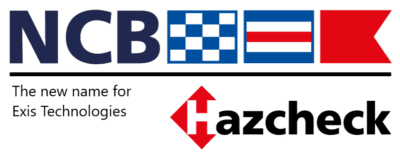TT Talk – Increasing industry controls in relation to dangerous goods, 10 December 2017
In a week during which yet another cargo-related containership fire took place, it is timely to draw attention to on-going industry developments to improve controls in the carriage of dangerous goods by sea.
One of the more serious issues that continues to blight the entire shipping industry is non-compliance in relation to the transport of restricted commodities and dangerous goods (DG). It is estimated that this is the root cause of a major shipboard fire on average every 60 days.
In an effort to deliver significant simplification, and improve safety and compliance, TT Club, together with Thomas Miller managed UK P&I Club, has joined forces with Exis Technologies to move its ‘Hazcheck Restrictions Portal ‘ into its next development phase. Exis has long been the supplier of DG related support tools, and Hazcheck Restrictions is the latest addition to its toolset, enabling participating lines to enter (or upload) and maintain all operator, ship and port restrictions for their operations, check for DG compliance with partner lines and accept provisional bookings. The portal started as an initiative with several major container lines that already used Exis Technologies’ range of Hazcheck compliance systems for their DG shipping operations, particularly to resolve issues posed under vessel sharing agreements.
Making complex less complex
It is estimated that 10% of containerised shipments include DG, with the result that some ships will have in excess of a thousand containers on any given voyage. This necessitates critical checks to be made against all the voyage legs (voyage segments between ports/ terminals) for all the DG being shipped. These checks are complex.
Each booking needs to account for the line’s own cargo management protocols, as well as those of the line actually operating the ship. Not uncommonly the ship will be chartered, with the result that the ship owner’s restrictions also need to be considered. Furthermore, the pure application of the IMDG Code means that suitable space on board in compliance with stowage requirements is finite.
Furthermore, many ports and individual container terminals maintain strict rules on the classes of DG that can be loaded, unloaded or transhipped, or even present on board while the ship is in port. Significant disruption can ensue if the ‘wrong’ DG is aboard a ship.
Multiply this process by the thousands of partner line DG bookings made each day and by the number of ports/terminals in the network, under time pressure, and the scale and complexity of the problem becomes clear. Unlike the world of airline cargo shipments, there is no single database of port and terminal restrictions or indeed operator restrictions. This leaves each shipping line trying to capture and keep its own record of port and terminal restrictions as they change on a frequent basis anywhere in their global network.
Ambition
Thus, the Hazcheck Restrictions Portal is an ambitious initiative aimed at reducing incidents related to DG shipments. TT Club would urge early stakeholder engagement, particularly from ports and terminals. The immediate next step involves encouraging container lines, ports, terminals, shippers and forwarders to upload their data into the portal free of charge. Facilitating the retrieval of the whole range of information from the portal for operational use is intended to lead to a new global portal for the whole supply chain to use in helping to make operations more efficient and safer.
“The immediate next step involves encouraging container lines, ports, terminals, shippers and forwarders to upload their data into the portal free of charge”
Further information can be obtained from TT Club (riskmanagement@ttclub.com) or Exis Technologies







